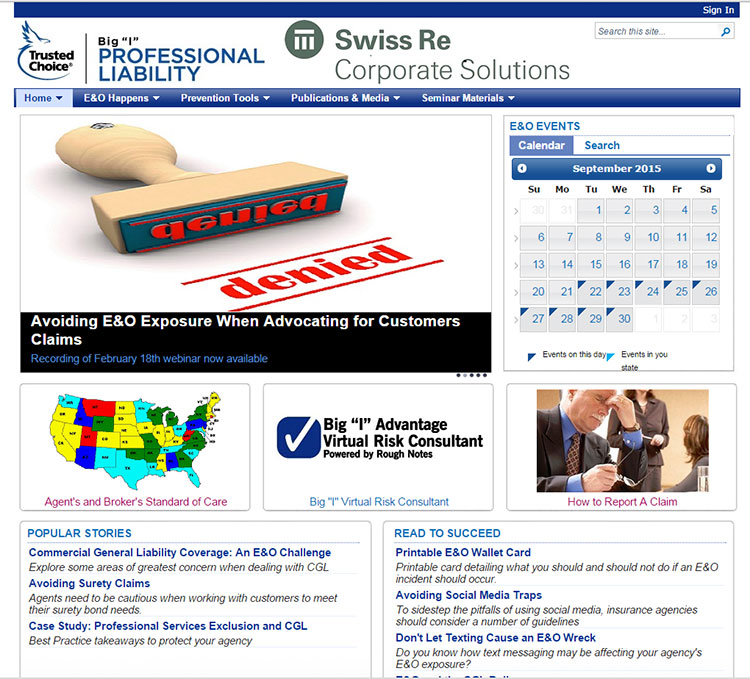None
FREE E&O webinar on proper claims advocacy
Highlights from a free webinar on our agency risk management site
Advocating on behalf of customers after the denial of a claim is something that most agents see as part of the value proposition they bring to customers. It is also considered by E&O defense attorneys as one of the most dangerous things agents could do when it comes to E&O claims.
See our highlights from the Big “I” Professional Liability and Swiss Re Corporate Solutions risk management webinar "Avoiding E&O Exposure When Advocating for Customer Claims."
- Discuss with staff your agency’s procedure on advocating for customer claims after a denial. If you don’t have procedures, develop them. The procedure should contemplate who can advocate, the natural of how to properly do so, and when in the process it is appropriate timing.
- Understand the potential ramifications of advocating for customer claims, including knowing the difference between “advocating” and “falling on your sword.” This becomes even more important with the trend of more E&O claims involving carriers coming back against agents. Situations when to advocate include correcting the carrier’s misunderstanding of the facts, when the carrier seems to be misinterpreting policy language, and seeking clarification or further explanation. Keep in mind that anything you put in writing can be damning testimony should it escalate to an E&O claim later on. Your written coverage interpretation discussions could even be used to highlight a lack of understanding, fueling an E&O claim alleging misrepresentation. Finally, “falling on your sword” is highlighted by taking the blame for the claim denial with the customer, asserting that it was the agency’s action or inaction that caused the lack of coverage, and suggesting the carrier or E&O carrier will pay the claim. Never ever do this, especially in any written form.
- Don’t hesitate to involve and receive the guidance of your E&O carrier in situations where a carrier has denied a claim. Providing documents, admitting liability, participating in settlement discussions, incurring costs or expenses, and giving recorded statements without your E&O carrier could violate the “Reporting and Notice” provisions of your E&O policy, jeopardizing coverage.
- Appropriate advocacy includes guiding the customer through the claims process, including ensuring they comply with notice provisions and other prerequisites of coverage. Facilitating the exchange of information with the carrier when an insured needs to make a claim is also an action that agents can take.
- Review the webinar recording “Avoiding E&O Exposure When Advocating for Customer Claims” (Swiss Re policy holders only) for more guidance from attorneys and Big “I” staff well-versed on the subject. Be sure sign up for future free E&O risk management webinars and check out prior webinar recordings on the E&O Happens website.
|
 Visit the E&O Happens website for valuable agency E&O risk management information and tools. For Swiss Re policy holders only, access using your IIABSC website login.
|
false,false,2